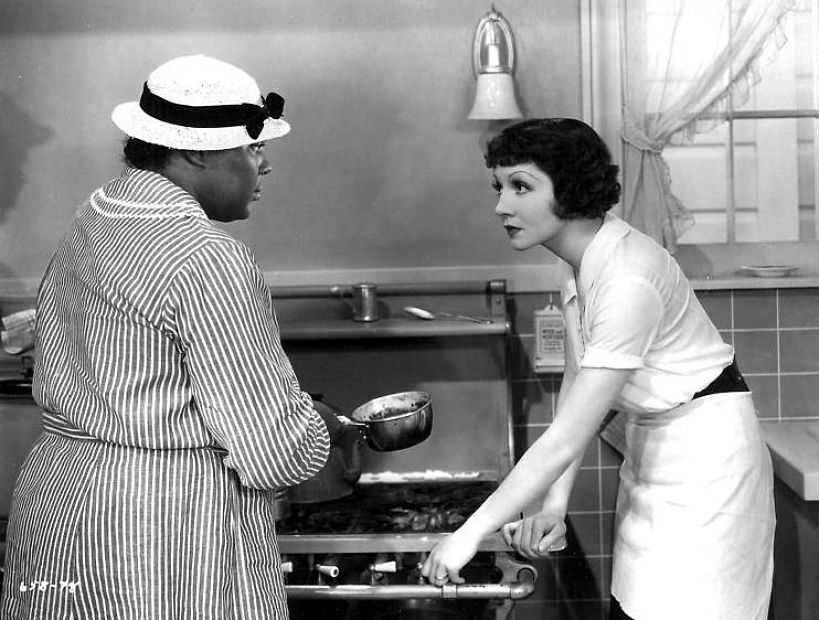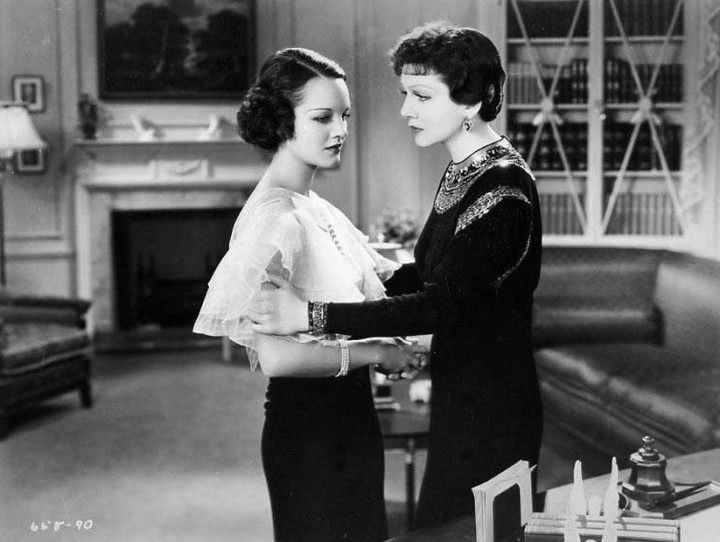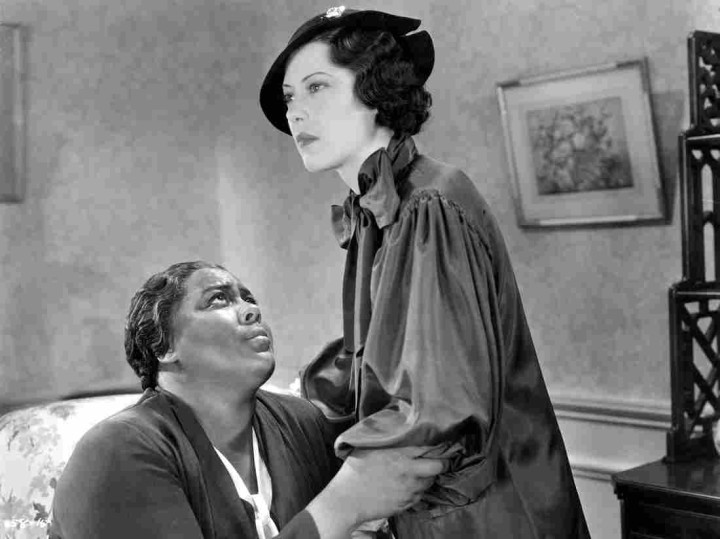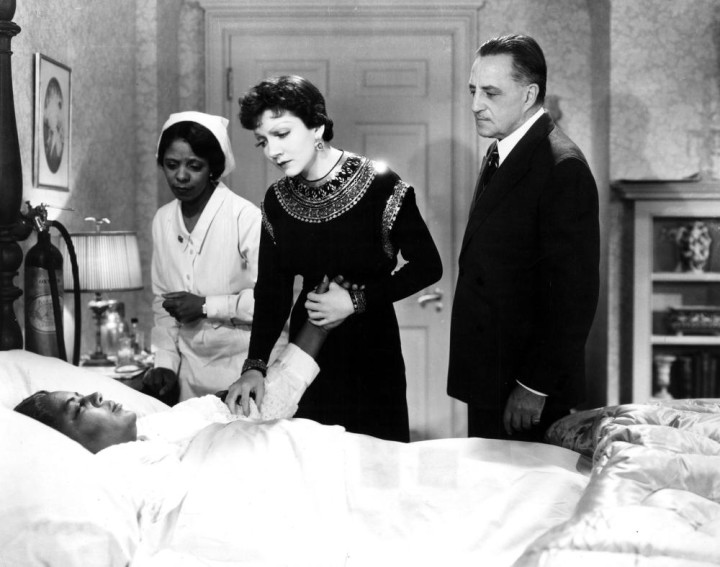In the 1930s, Universal Pictures only had two “star” directors: James Whale and John M. Stahl. Occasionally, a director of note would make a single film there, but most of Universal’s movies were—at best—made by craftsmen. Of the staff directors, only Whale and Stahl qualified as filmmakers. Today, Whale (whom they billed as “the ace of Universal”) is much better remembered, while Stahl has sadly slipped through the cracks—mostly because his most famous works—this, Magnificent Obsession (1935), When Tomorrow Comes (1939)—were remade in the 1950s by Douglas Sirk, who, for reasons I will never understand, has come to be viewed as a major filmmaker. Sirk’s take on the soap opera was to subvert it by making it slyly ridiculous in a self-aware postmodernist manner, suggesting a contempt for the material.
Stahl respected the material and handled it that way. Naive? Perhaps, but there’s something to be said for his sincerity—especially in Imitation of Life, which I’d call his masterpiece. It—along with Magnificent Obsession—was certainly instrumental in helping keep the studio afloat after it changed hands in 1936. The re-release of Imitation of Life in the late ‘30s was one of their bigger moneymakers. (Unfortunately, that re-issue is the reason the main title credit is still a replacement one today, since they appear to have lost or destroyed the original.)
It’s easy today to find some of the racial aspects of the film a little quaint and even condescending, but looked at in historical perspective, it’s something else again—as is the fact that, unlike the Sirk remake, that a black woman, Fredi Washington, was cast as the light-skinned Peola. And, frankly, I’m not at all sure that the film is all that quaint. It certainly makes no bones about the dichotomy that exists between Bea and Delilah—especially in that it’s Bea who benefits more from the riches that are generated from a secret pancake recipe belonging to Delilah. Much is suggested here without being said. Stahl is subtle like that. Of course, what makes all of this work is the fact that it’s all emotionally effective. Regardless of how dated—or unconsciously segregated—some aspects of the film might seem, the power of the funeral remains undiluted (I defy anyone to sit through it dry-eyed), as does the tragedy of the situation between Delilah and Peola. Louise Beavers truly should have received an Oscar for her performance. But don’t sell the rest of the cast short. It takes an actress of true greatness and charisma to bring a lump to your throat with a line like “I want my quack-quack,” and Colbert manages it.
The Asheville Film Society will screen Imitation of Life Tuesday, Sept. 15, at 8 p.m. in Theater Six at The Carolina Asheville and will be hosted by Xpress movie critics Ken Hanke and Justin Souther.









Before you comment
The comments section is here to provide a platform for civil dialogue on the issues we face together as a local community. Xpress is committed to offering this platform for all voices, but when the tone of the discussion gets nasty or strays off topic, we believe many people choose not to participate. Xpress editors are determined to moderate comments to ensure a constructive interchange is maintained. All comments judged not to be in keeping with the spirit of civil discourse will be removed and repeat violators will be banned. See here for our terms of service. Thank you for being part of this effort to promote respectful discussion.